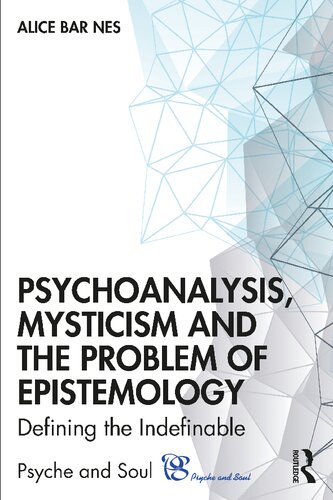

Most ebook files are in PDF format, so you can easily read them using various software such as Foxit Reader or directly on the Google Chrome browser.
Some ebook files are released by publishers in other formats such as .awz, .mobi, .epub, .fb2, etc. You may need to install specific software to read these formats on mobile/PC, such as Calibre.
Please read the tutorial at this link: https://ebookbell.com/faq
We offer FREE conversion to the popular formats you request; however, this may take some time. Therefore, right after payment, please email us, and we will try to provide the service as quickly as possible.
For some exceptional file formats or broken links (if any), please refrain from opening any disputes. Instead, email us first, and we will try to assist within a maximum of 6 hours.
EbookBell Team

4.0
76 reviewsThis book presents key psychoanalytic theories from a fresh perspective: that of the mystical element.
The author explores the depth-structure of central assumptions in psychoanalytic theory to uncover the mystical core of conventional analytic thinking. Exploring authors from Freud and Ferenczi, through Bion and Winnicott, to contemporary voices such as Ogden, Bollas and Eigen, the book shows that psychoanalysis has always operated on the assumption of psychic overlap, a "soul-to-soul" contact, between patient and analyst. Surprisingly, the book shows how this "magical" facet goes hand in hand with a pragmatic worldview that explores the epistemological complexities of psychoanalysis in search of a way to join the subjective, even the mystical, with the practical aim of serving as a validated mental health discipline. This is accomplished through an interdisciplinary and intertextual encounter between psychoanalysis and the innovative pairing of William James’ pragmatic philosophy and Martin Buber’s dialogic thought. The author's paradoxical stance surrounding the nature and role of psychoanalysis and its mystical facet resonate the great challenge embedded in Winnicott's insistence on tolerating paradox and Bion's demand to respect all parts of the (psychoanalytic) truth, in this case, the practical and mundane alongside the mystical and magical.
The book’s broad, interdisciplinary outlook will captivate both psychoanalysts and psychoanalytic therapists as well as scholars of philosophy.